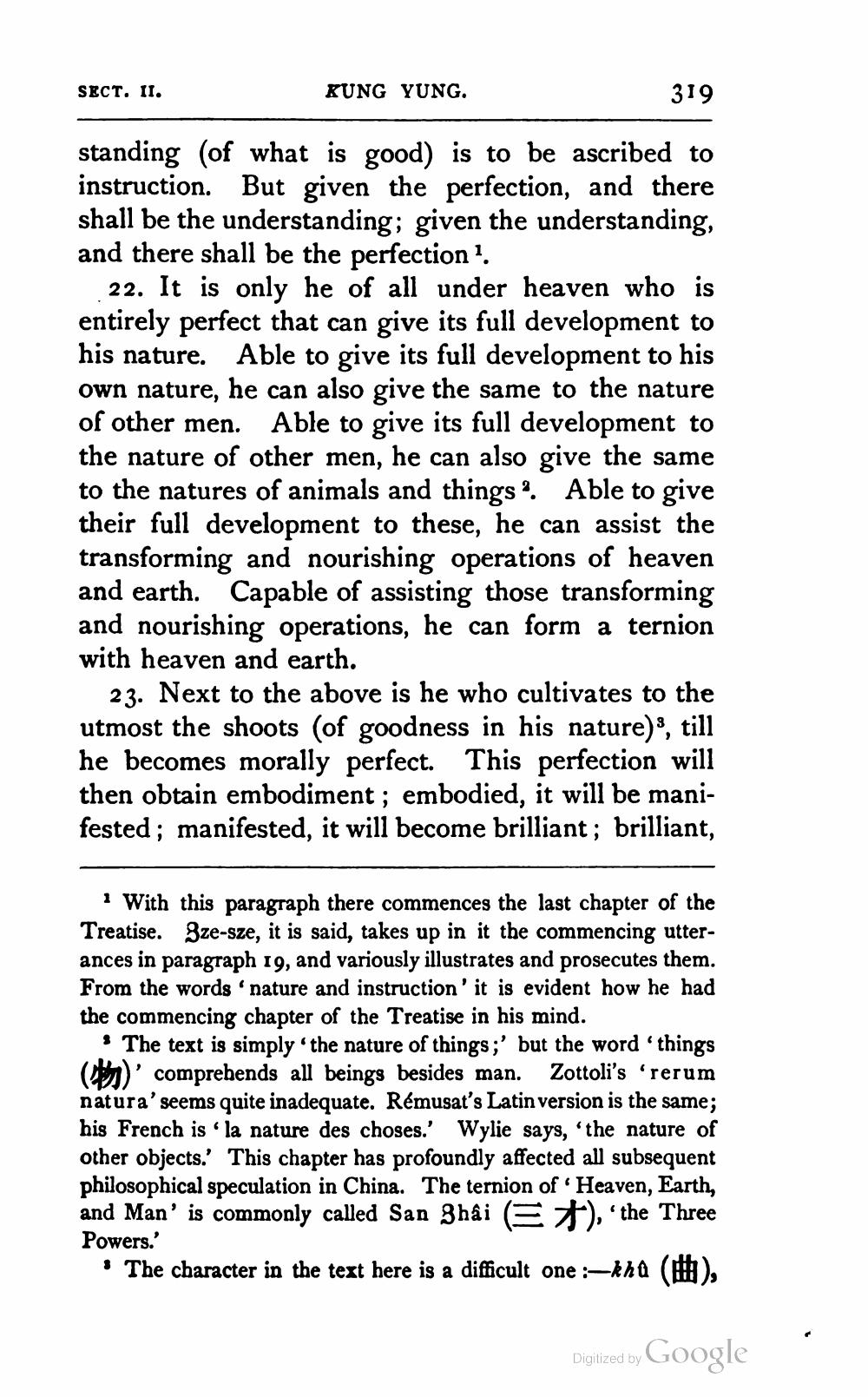________________
SECT. II.
KUNG YUNG.
319
standing of what is good) is to be ascribed to instruction. But given the perfection, and there shall be the understanding; given the understanding, and there shall be the perfection?
22. It is only he of all under heaven who is entirely perfect that can give its full development to his nature. Able to give its full development to his own nature, he can also give the same to the nature of other men. Able to give its full development to the nature of other men, he can also give the same to the natures of animals and things. Able to give their full development to these, he can assist the transforming and nourishing operations of heaven and earth. Capable of assisting those transforming and nourishing operations, he can form a ternion with heaven and earth.
23. Next to the above is he who cultivates to the utmost the shoots (of goodness in his nature), till he becomes morally perfect. This perfection will then obtain embodiment; embodied, it will be manifested; manifested, it will become brilliant; brilliant,
With this paragraph there commences the last chapter of the Treatise. Sze-sze, it is said, takes up in it the commencing utterances in paragraph 19, and variously illustrates and prosecutes them. From the words 'nature and instruction' it is evident how he had the commencing chapter of the Treatise in his mind.
* The text is simply the nature of things;' but the word 'things ( comprehends all beings besides man. Zottoli's 'rerum natura' seems quite inadequate. Rémusat's Latin version is the same; his French is ' la nature des choses.' Wylie says, 'the nature of other objects. This chapter has profoundly affected all subsequent philosophical speculation in China. The ternion of Heaven, Earth, and Man' is commonly called San Zhai E +), 'the Three Powers.'
• The character in the text here is a difficult one :-ha (ili),
Digitized by Google




